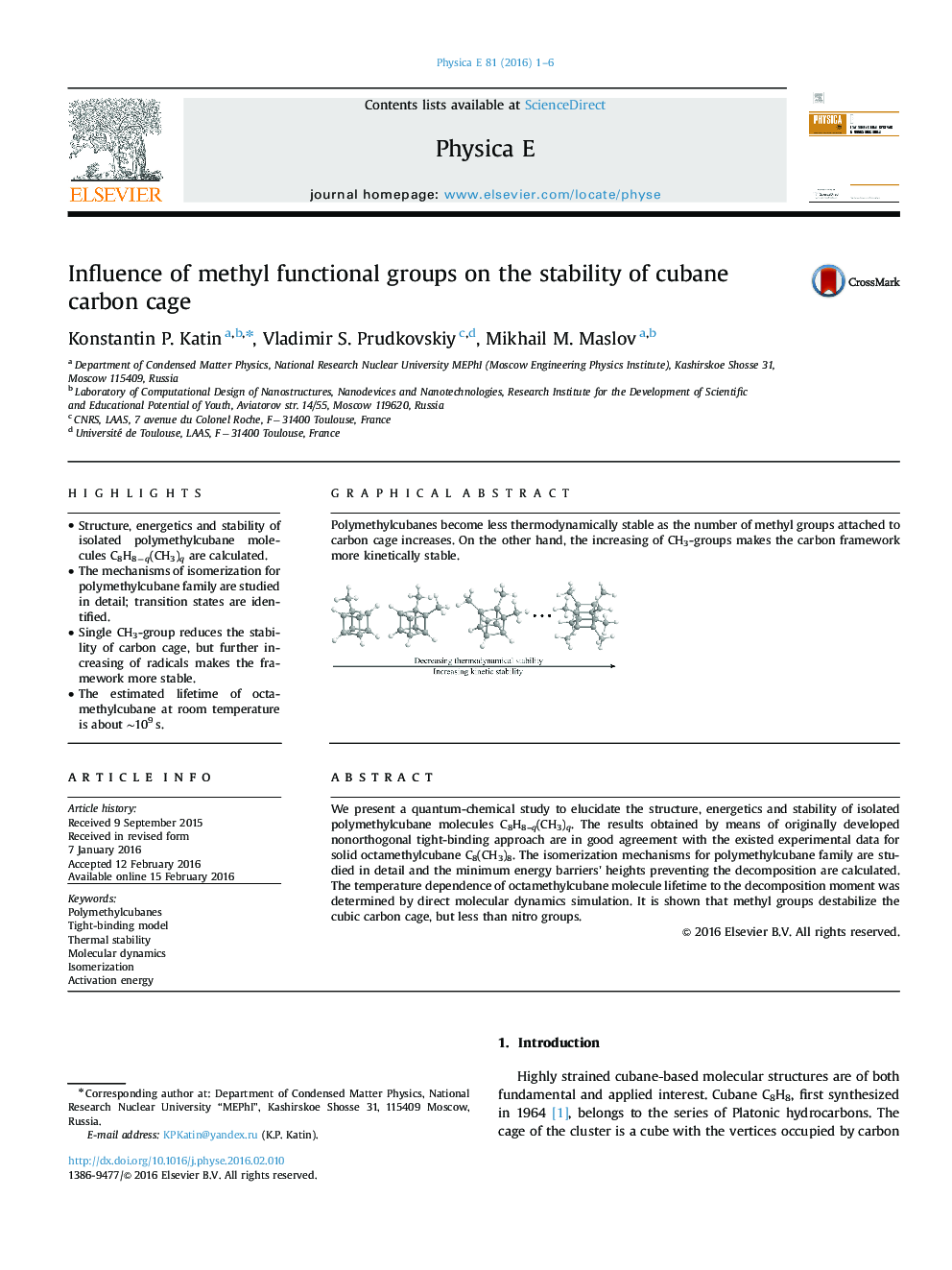| Article ID | Journal | Published Year | Pages | File Type |
|---|---|---|---|---|
| 1543520 | Physica E: Low-dimensional Systems and Nanostructures | 2016 | 6 Pages |
•Structure, energetics and stability of isolated polymethylcubane molecules C8H8−q(CH3)q are calculated.•The mechanisms of isomerization for polymethylcubane family are studied in detail; transition states are identified.•Single CH3-group reduces the stability of carbon cage, but further increasing of radicals makes the framework more stable.•The estimated lifetime of octamethylcubane at room temperature is about ∼109 s.
We present a quantum-chemical study to elucidate the structure, energetics and stability of isolated polymethylcubane molecules C8H8–q(CH3)q. The results obtained by means of originally developed nonorthogonal tight-binding approach are in good agreement with the existed experimental data for solid octamethylcubane C8(CH3)8. The isomerization mechanisms for polymethylcubane family are studied in detail and the minimum energy barriers' heights preventing the decomposition are calculated. The temperature dependence of octamethylcubane molecule lifetime to the decomposition moment was determined by direct molecular dynamics simulation. It is shown that methyl groups destabilize the cubic carbon cage, but less than nitro groups.
Graphical abstractPolymethylcubanes become less thermodynamically stable as the number of methyl groups attached to carbon cage increases. On the other hand, the increasing of CH3-groups makes the carbon framework more kinetically stable.Figure optionsDownload full-size imageDownload as PowerPoint slide
